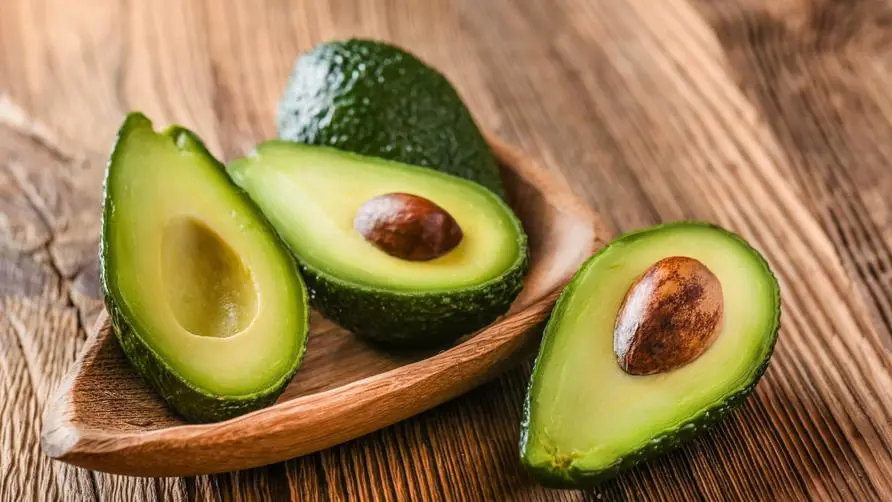You can still get protein without eating eggs! Nutritionists list 10 high-protein foods: "This kind" should be eaten first

Taiwan and abroad Bird flu outbreak triggers “egg shortage”! Nutritionists urge: Eat more 10 high-protein foods
Due to the impact of the global bird flu and the large temperature changes in winter, “egg shortage” has been reported in various parts of the world and even in Taiwan, affecting many people who love to eat eggs. Gao Minmin, a nutritionist, said in the community that the skin, nails, and hair of the human body all require protein nutrition to form; and an egg contains about 7 grams of protein, which is indeed a good source of protein.
Dietitian Gao Minmin pointed out that for adults, the daily protein intake needs to be “the size of a palm”, about 21-35 grams, and it is recommended to consume 3-8 servings of protein a day. However, Taiwan is currently in an egg shortage crisis. If eggs are usually used as a source of protein, what foods can replace eggs? Nutritionist Gao Minmin explains that the following foods contain the amount of protein in one egg:
2 squares of traditional tofu.
Half a box of soft tofu.
1/3 piece of dried black beans.
1 and 1/3 slices of dried beans.
1 cup soy milk (about 190c.c).
5 tbsp larvae.
3 tablespoons oysters.
4 sword shrimps.
39g natto.
1/3 palm size fish and meat.
In addition, Gao Min Min nutritionist emphasized that plant-based protein has lower fat and cholesterol content. It is recommended that people who are currently on a lacto-ovulin diet can eat edamame, peas, soybeans or quinoa during egg deficiency to consume different types of amino acids. . In addition to paying attention to the source of protein intake, you should also pay attention to the priority of food. It is recommended to choose soy products as the first choice, followed by seafood or fish, thirdly eggs, and finally red meat or white meat and other meats.
Are soft-boiled eggs and poached eggs actually very high in calories? Understand the calorie ranking of common egg dishes at once
Even if there are eggs to eat, the different cooking methods will lead to huge differences in the calories of egg dishes? Nutritionist Gao Minmin further lists the calorie ranking of common “egg dishes” as follows (calculated based on 100g serving):
Scrambled eggs: 215 Kcal. If you want to fry the egg liquid into a golden color, you must add more oil, which will cause the heat to increase simultaneously.
Poached eggs: 192 Kcal. Poached eggs are convenient and delicious, and are a must-have breakfast dish for many people. However, if more oil is added, there may also be a risk of heat explosion.
Soft-boiled eggs: 175Kcal. The egg whites are cooked and the yolks are half-cooked but not solidified, and have a smooth texture. Some egg yolks and egg whites are in a half-cooked state, which may allow bacteria to breed. It is recommended for people with poor gastrointestinal function and poor immunity to consider taking it.
Braised eggs: 171 Kcal. The heavy-flavored braised eggs have a relatively high sodium content, so patients with high blood pressure should consider eating them.
Boiled eggs: 144 Kcal. The taste is lighter, no additional oil or salt is needed, and the nutritional value of organic eggs can be fully preserved.
Tea eggs: 141 Kcal. Tea eggs soaked in marinade for too long can easily cause the loss of vitamin B complex and other nutrients; and the darker the color, the higher the sodium content, so it is not recommended for patients with high blood pressure, cardiovascular disease and kidney disease.
Preserved egg: 127 Kcal. It is a processed food and may contain high sodium content. When consuming preserved eggs, you should pay attention to the salt intake of other foods.
Steamed eggs: 64 Kcal. The taste is smooth and tender, easy to absorb, suitable for children and the elderly.
Finally, dietitian Gao Minmin reminds that long-term insufficient protein intake can easily lead to sarcopenia, wound infection, fatigue and weakness, or even low immunity. People should avoid egg deficiency or eating less eggs, which will affect protein intake. It is recommended to eat tofu, soy milk or seafood in moderation to supplement nutrition and ensure adequate protein intake.
Further reading:





